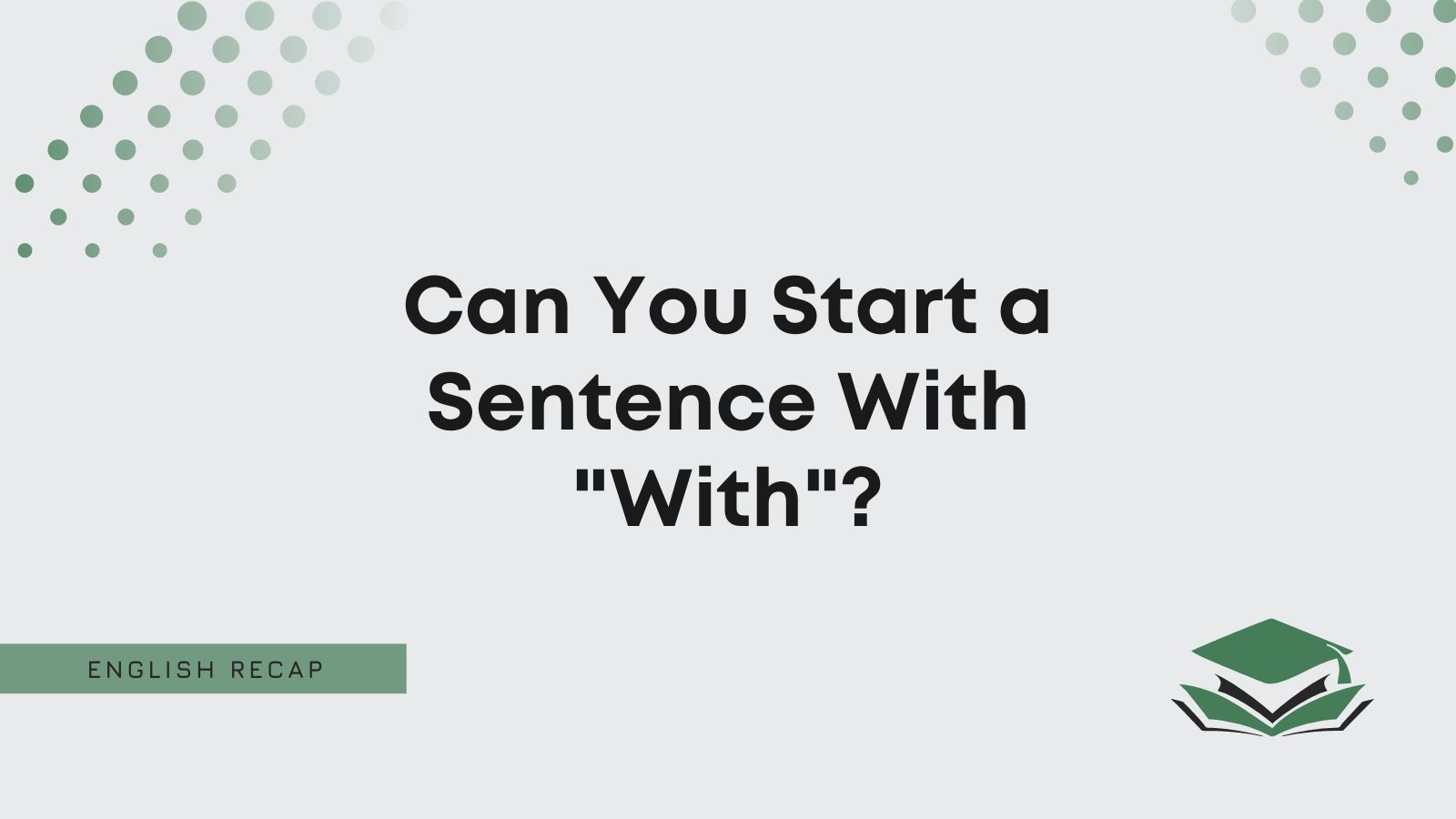You can use “with” at the beginning of a sentence in formal and informal writing. The word “with” is a preposition, and at the start of the sentence, it creates a dependent clause, followed by another clause. E.g., “With regards to the results, they were as low as we had expected them to be.”
The word “with” describes a feature or a characteristic of something.
- With that type of attitude, you will not get very far in life.
Or, it can describe what accompanies something else. It can be either people or objects.
- With two of his friends, Paul set off on a bike ride from New York to Los Angeles.
Furthermore, there are several common phrases that “with” appears in:
- With that being said
- With that said
- With that
The terms “with that being said” and “with that said ” are the same; they both refer to the consequence of somebody saying something.
However, they can have two meanings.
The first is the same as “however.” Here’s an example of this usage:
- I think we will go to the cinema tomorrow. With that being said, maybe it’s better to watch a movie at home.
The second is similar to “so” or “therefore,” as shown in this example:
- He said that he had had enough of work. With that being said, he just stood up and walked out.
The term “with that” is similar, except it refers to actions or events rather than words.
- He told his father he was wrong and cruel. With that, he calmly stood and walked out of the room.
Keep reading to learn more about using “with” in formal writing and how to make the idiomatic uses of “with” sound more natural.
Can You Start a Sentence With “With” in Formal Writing?
You can start sentences with “with” in formal writing.
For example, using “with” to create dependent clauses followed by a second or third clause is standard practice.
- With all of the variables expressing negative values, they disproved the predictions.
- With HSBC Premium, we assign you a private account manager to assist and advise regarding your finances.
Some idiomatic phrases containing “with,” such as the ones below, are not particularly suited for formal writing.
- With that being said
- With that
However, other common phrases include “with,” and you can use them in formal writing.
For example:
- With reference to your query, I am afraid we cannot fulfill your request.
- With regard to his grades and behavior, he has performed well this semester.
- With respect to the economy, inflation reached an all-time high this year.
Furthermore, you could use a synonym as an alternative to starting a sentence with “with” to mix up your language.
Instead of saying “with regards” or similar phrases, you can use:
- Concerning
- Regarding
If you are talking about something accompanying someone or a characteristic, you can use:
- Accompanied by
- Considering that
- Included in
- Including
Can You Start a Sentence With “With” in Informal Writing?
You can start sentences using the word “with” in informal writing.
The term “with” is appropriate for both conversational messaging and informal work emails.
Here are some examples of “with” at the beginning of a sentence:
- With all my heart, I hope that we win tomorrow night’s game.
- With that kind of luck, I should buy a lottery ticket.
Furthermore, these phrases that contain the word “with” are suitable in informal English:
- With that being said
- With that said
- With that
Here’s an example of how to use “with that being said” in an informal context:
- She said she didn’t want to get married. With that being said, she accepted the proposal straight away.
However, although you can use these phrases to start sentences, adding a connecting word such as “and,” “although,” or “but” makes the sentence flow better.
- I want to buy a new car. Although, with that being said, I cannot afford it.
- He got in the car without saying goodbye. And, with that, he was gone.
- We need to talk to Jack about his grades. So, with that said, let’s go and wake him.

